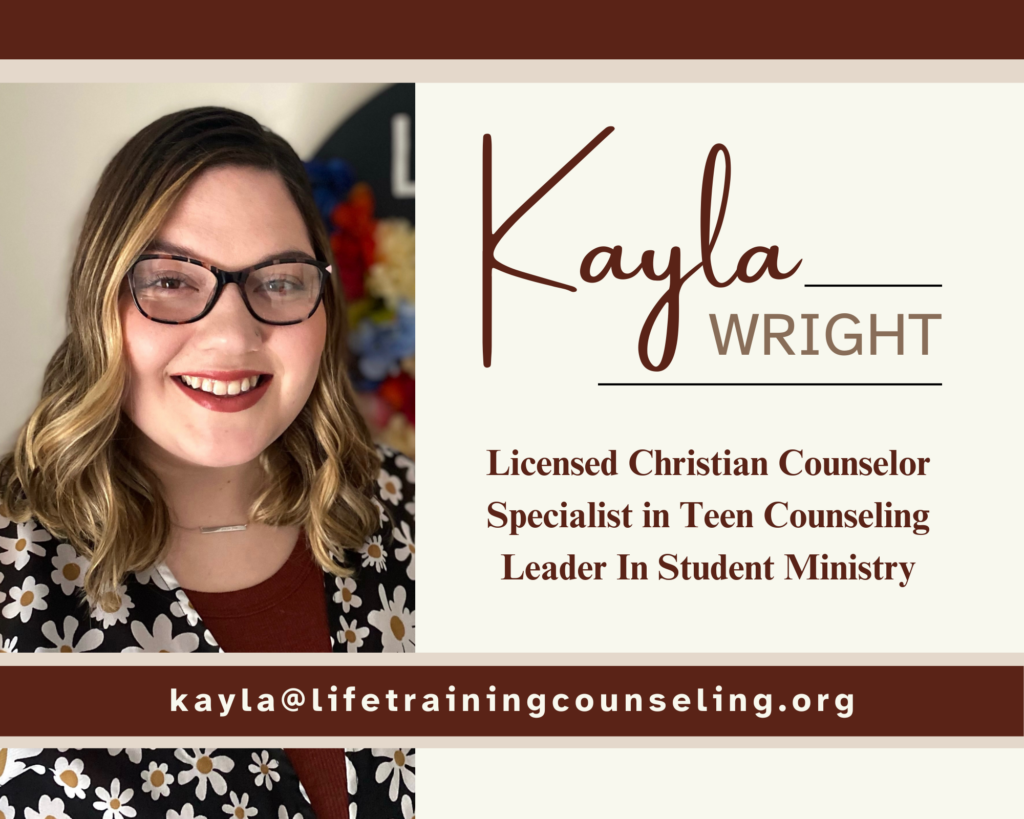Navigating Conflict With Teens
As a Christian counselor for teens, I often interact with adolescents who struggle to communicate with their parents, and parents who don’t know how to communicate with their kids. Frustrations are multiplied when each individual feels they are not being heard. There are some things for both parties to keep in mind when considering settling arguments with each other. A skilled Christian counselor can help when navigating conflict with teens.
Parents, Your Child Can Disagree Without Being Disrespectful
Can teens be disrespectful? Absolutely. Are they always being disrespectful? No. As kids grow and mature, they begin thinking for themselves, outside of their parents. This becomes more prominent as they enter adolescence. It is important for the parent to recognize the child is not always attempting to be disrespectful by sharing their thoughts. On the contrary, the child is exercising their ability to process information outside of what the parent may have previously taught them. Instead of becoming defensive, take time to explore your child’s thoughts. Ask questions and listen to what they have to say. You may learn something, or you may have the opportunity to show them information they didn’t previously have to help them form their thoughts.

Teens, You’re To Submit To Your Parents’ Authority
While it is okay to disagree with your parents, it is not okay to disobey them. Proverbs 22:6 instructs parents to “train up children in the way they should go.” When your parents are telling you to do something, there is a purpose behind it. As much as you hate washing the dishes or cleaning your room, your parents are teaching you responsibility, dependability, respect, and self-discipline. Honor your parents by doing what they say. Discuss with your parents how you will navigate communicating concerns over a task, whether it’s before you do the task, or at a later time. Respect whatever your parents tell you, and work with them to find a middle ground where both parties feel safe. This is paramount when navigating conflict with teens.
Communicate Your Emotions Clearly
Emotions can be hard to navigate by both teens and adults. It is important to learn how to identify emotions and communicate them well. Anger is an especially difficult emotion to communicate. The physical responses our bodies have to anger- high blood pressure, adrenaline pumping, etc.-can cause any situation to feel tense, resulting in both parties putting up a defense. When communicating anger, avoid accusing language such as, “you made me feel…”
Realistically, no one can make anyone feel anything. Your emotions are a response to an action. Instead, say, “when you ____, I felt ____.” This identifies the anger and the actions that stirred it without accusing the other individual of negative intentions. If you feel like you are at the point of exploding, it may be beneficial to work some of your energy out before talking it out. Exercise and screaming into a pillow are two examples of how we can get some of our anger out in a healthy way. Once you’ve calmed down, then it is good to come together and communicate your anger. This is another critical element of navigating conflict with your teen.

Find a Mediator With Skills To Help Navigate Conflict With Your Teen
If you are new at communicating your frustration in a healthy way, or you find it is consistently difficult to understand one another, it is beneficial to find an individual who can be a mediator between the two of you. Talk with your pastor or seek family counseling to create a space where both parties can be heard and understood. Sometimes there are personal misconceptions that get in the way of understanding, and sometimes feelings aren’t communicated in a way the other party can receive them. Whatever the reason, having a third party present can help tensions be lowered and a compromise be found. It is important to note that this mediator isn’t meant to be a part of the conversation forever, just until both the teen and parent have equipped themselves with the tools necessary to communicate with one another effectively.
Sometimes Parents And Teens Can Benefit By Allowing A Teen Counselor To Mediate Difficult Conversations
Kayla Wright is a frequent guest author on this blog. She joined the counseling team at Life Training Christian Counseling in Louisville, Kentucky in May of this year. The passion of her counseling work is to make a meaningful difference in the lives of Teens and pre-teens.
Kayla is nationally licensed as a Christian Counselor by the National Christian Counselors Association. She possesses an advanced board certification in Child & Adolescent Therapy. Kayla gained extensive experience and credibility in providing counseling to teens and pre-teens during her tenure on the staff of Revive Christian Counseling in Owensboro and Madisonville, Kentucky. She is highly skilled in teenage substance abuse counseling and teenage depression counseling.
Kayla Wright, as well as each of our other counselors, offers convenient sessions at Life Training Christian Counseling in Louisville, Kentucky. She also offers online counseling via Zoom or FaceTime. Please click on this link to learn much more about how our Counseling for teens and pre-teens in Louisville, Kentucky can help the child you love find the highly-effective, Christ-centered help they need. Contact us today at 502-717-5433, or by email at kayla@lifetrainingcounseling.org

